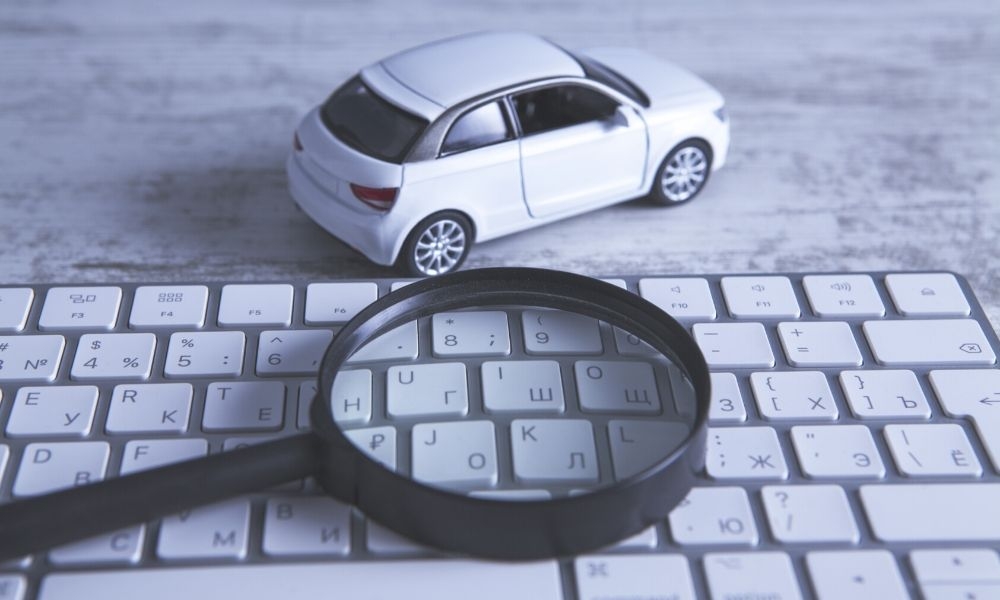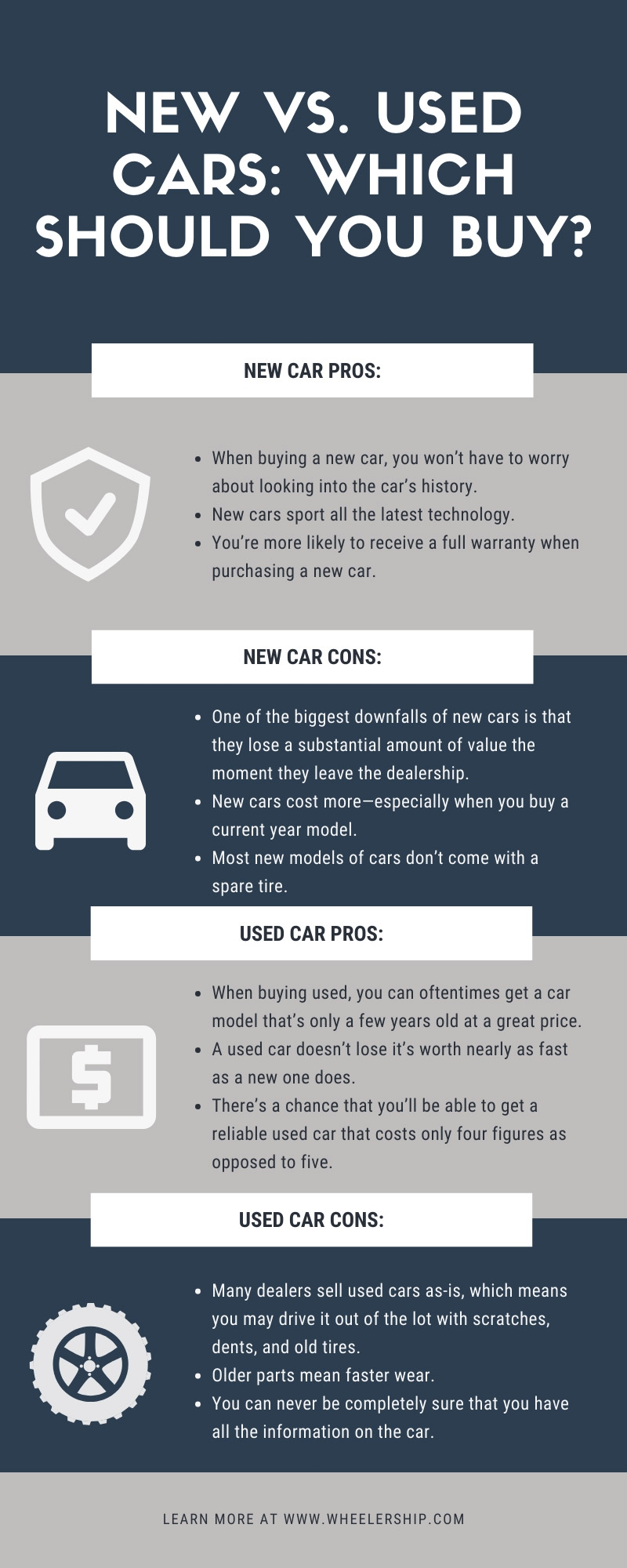FREE GROUND SHIPPING + ONE-YEAR WARRANTY ON WHEELS
New vs. Used Cars: Which Should You Buy?

A car isn’t an investment that one should take lightly. This costly purchase is one that will ideally provide several years of use with minimal inconveniences. There are a lot of things to consider when buying a car, which can include the following:
- Special features
- Potential future costs
- Safety ratings
- Space
- Financing options
- Fuel efficiency
The first question many people ask during the decision-making process is whether to buy a vehicle new or used. This is a choice that will likely impact you in the years to come. As such, it’s important that you carefully weigh the pros and cons of both options before proceeding any further in the buying process. To help make this process an easier one, we made a list of pros and cons regarding each option.
New Cars
Pros:
- No matter if it’s new or used, you should research the car model you want to buy. However, there’s extra work that you will need to carry out if you choose to pursue a used car. When buying a new car, you won’t have to worry about looking into the car’s history. There’s no worry about past accidents, repairs, or how well previous owners maintained the vehicle.
- New cars sport all the latest technology, a factor that tops the list of many buyers. They want Bluetooth, built-in navigation, voice control, backup cameras, and entertainment systems. The technology in cars becomes more advanced every year and is a deciding factor for many buyers.
- You’re more likely to receive a full warranty when purchasing a new car, as there’s generally less of a chance it breaks down. Additionally, many new cars today come with roadside assistance.
- Due to environmental health concerns and rapid advancements in technology, the fuel-efficiency of new car models is steadily improving. This is ideal not only for saving on the cost of gas but also for reducing our carbon footprint.
- Another consideration is that manufacturers are consistently improving the safety features in cars. These include anti-lock braking systems, more airbags, and backup cameras.
Cons:
- One of the biggest downfalls of new cars is that they lose a substantial amount of value the moment they leave the dealership. And by substantial, we mean thousands of dollars the minute they’re off the lot. When you eventually choose to trade in your car, the resale value will have dramatically decreased.
- While this may seem obvious, new cars cost more—especially when you buy a current year model. You can oftentimes find a used car that is only a couple years old for as much as half the price you would a brand-new one.
- While many initially believe that the insurance premium for used cars would be higher, this oftentimes not the case. The reason for this is that any repairs for new cars are likely to carry a hefty price. The parts for brand-new models are not cheap, and insurance companies prefer not to shell out as much money as the repairs may require.
- One thing that is a large con for many is that most new models of cars don’t come with a spare tire. They instead have a tire-inflation kit, which isn’t sufficient to handle more serious tire incidents that may occur on the road.
Used Cars
Pros:
- When buying used, you can oftentimes get a car model that’s only a few years old at a great price. Though companies rejuvenate car models every year or two because they’ve made improvements, its predecessor oftentimes still sports many attractive features.
- A used car doesn’t lose it’s worth nearly as fast as a new one does. Depending on when you choose to re-sell it, there’s a chance you can sell the car back for an amount close to what you bought it for.
- The cost of used cars makes it an incredibly attractive choice for many buyers. There’s a chance that you’ll be able to get a reliable used car that costs only four figures as opposed to five. You’ll likely get an even better steal if you know how to talk to your dealer.
- The parts for used cars cost less to replace than the ones for new cars, and OEM parts can make the vehicle look brand new. For example, if you’re buying 2009 Honda Accord rims as opposed to a newer model, you’ll receive a great product at a lower price.
- Depending on the state of your car, you may get a fairly low insurance rate. As much as the decision-making process includes future costs, this is an important factor to consider.
Cons:
- Many dealers sell used cars as-is, which means you may drive it out of the lot with scratches, dents, and old tires. It’s disappointing to find a vehicle that seems like a steal only to find out that it may not be in the best condition.
- Older parts mean faster wear, and if a used car fails in any way, they may accrue high repair costs. If your engine or transmission fails, you’re likely facing a substantial price tag.
- Even though dealerships and sellers do their best to have a car’s entire history on hand, you can never be completely sure that you have all the information. Even when researched, the purchase of a used car always comes with some degree of risk.
Which to Buy?
So, when weighing the options, you may wonder which of these options we recommend. While we can share the pros and cons of each, you should ultimately make your choice according to your lifestyle. You should see how your personal needs and habits line up with what we listed above. Someone purchasing their first car may want to consider buying a used car as their lack of experience may lead to more wear and tear. An individual that travels a lot, however, may not want a car that already has several miles on the odometer.
When you make your decision, consider your budget and what you need the car for. It’s important to not only think of your budget going into the dealership but throughout your ownership. What room do you have in your future finances for insurance and any future repairs? We recommend that you keep our list of pros and cons on hand while you conduct further research on car models and their features. We know that you’ll come out of it with the perfect car for your needs!

